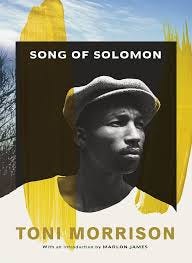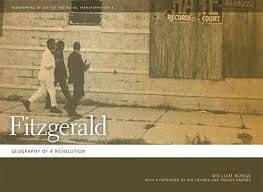“I do believe my whole life is geography,” remarks one of Toni Morrison’s characters.
In Morrison’s Song of Solomon, the black residents of a turn-of-the-century street rename it Doctor Street as a means to identify the location of the only black doctor in town. Fifty years later, the city posts notices insisting that the street “had always been known as Mains Avenue and not Doctor Street.” But for local people, this was a “genuinely clarifying public notice because it gave Southside residents a way to keep their memories alive and please city legislators as well. They called it Not Doctor Street, and were inclined to call the charity hospital (closed to black people) No Mercy Hospital.” (Morrison, Song of Solomon, 1977)
Google (Maps) has changed the name of the Gulf of Mexico for its American users, stating that the decision was taken in accordance with Trump's executive order to "restore names that honor American Greatness". Moreover, we have been informed that February 9 is now Gulf of America Day: "I call upon public officials and all the people of the United States to observe this day with appropriate programs, ceremonies, and activities," a White House statement said. (How long before the enforced parades begin?)
Yesterday, the Associated Press (AP) was barred from the Oval Office for not changing the name of Gulf of Mexico in its style guide. It remains to be seen how long the AP will be barred, or whether fellow journalists will act to defend their colleagues and our collective right to freedom of speech and the press.
Trump’s designs on Greenland continue apace with the introduction of a Congressional bill to “allow” the U.S. to acquire Greenland and change its name: “America is back and will soon be bigger than ever with the addition of Red, White, and Blueland,” Georgia Rep. Earl Carter said in a statement Tuesday. “We will proudly welcome [Greenland’s] people to join the freest nation to ever exist.”
Have at it folks. Find your best Morrisonian refusals, subversions, mappings, and general mockery of this bloated and delusional regime. Deploy (carto)graphic and rhetorical humor because sometimes laughter is a release for our shock and despair. It is also a creative and effective tool. In his study of the role of humor in the politics of decolonization, Achille Mbembe once wrote that “the people who laugh kidnap power and force it, as if by accident, to contemplate its own vulgarity.”[1]
We can laugh to show the cruelty and absurdity of power. But, and as Mbembe knows all too well, our laughter can only be one part of our resistance. It belongs to a larger picture, for the dangers and cruelty of this regime are real and we have a huge fight on our hands.
The politics of naming, the not-doctor-streets of our resistance, the reclaiming of our geographies are only one part of it but perhaps a more important part than is generally acknowledged. Think of it this way: when a trans child is banned from playing sports or a trans or non-binary person can no longer travel on a passport reflecting their identity, when women must move to other states for our increasingly threatened reproductive care, when textbooks are removed from school libraries, when immigrants are rounded up, detained, sent to Guantanamo, when an entire population is threatened with ethnic cleansing (we can only wonder what ‘name’ for Gaza lies in store), these are all geographies. Morrison’s character (my life is geography) captures something very real for all those directly threatened by the Trump regime.
Much has been said, rightly, about MAGA efforts to rewrite history, beginning with the events of January 6. And of course, the history of naming (including the erasure of names and identities) will form an integral part of the relentless stream of executive orders to come. History and geography cannot be disentangled. The rewriting of history nearly always entails the re-mapping of places - from streets and towns to nation-states and/or the forced disappearance of people from public spaces. We might recall the radical geographers who understood this entanglement best:
There is the long-remembered line by geographer and Paris Communard Élisée Reclus: “Geography is history in place, history is geography in time.” William Bunge, chronicler of postwar Detroit and northern forms of segregation, sought to expose the “American tradition of geographic ruthlessness [that] contradicts the school-boy myths of free settlement in a free land.” Having noted that Detroit’s freeways (often known as the trenches) were designed to remove entire city neighborhoods from the line of vision of commuters driving between the city and its wealthier suburbs, Bunge remarked that “no stronger indication of the power of white racism can be found than its ability to hide historic geography.[2]
So when we fight the rewriting of history, we also fight the geographical effects of history. We fight for the freedom to exist, for our embodied existence, to be who we are in our given place and time, and for the freedom of movement. The politics of naming and mapping may seem, at first, a distraction of little importance. Don’t believe it. We live in time and place, and we render these in words. How we describe ourselves and our places matters. We are history and geography.
As I write this morning, battling despair for my homeland and the rest of the planet, I give thanks to the radical geographers, and thanks to Toni Morrison for taking us to Not Doctor Street. May they always remind us that our powers of subversion and resistance start where we are: in our bodies, houses, streets, places. From there we search for others, and we find them. We find one another.
[1] Achille Mbembe, “The Banality of Power and the Aesthetics of Vulgarity in the Postcolony” Public Culture 4, (1992).
[2] William Bunge, Fitzgerald: The Geography of a Revolution (1971).




